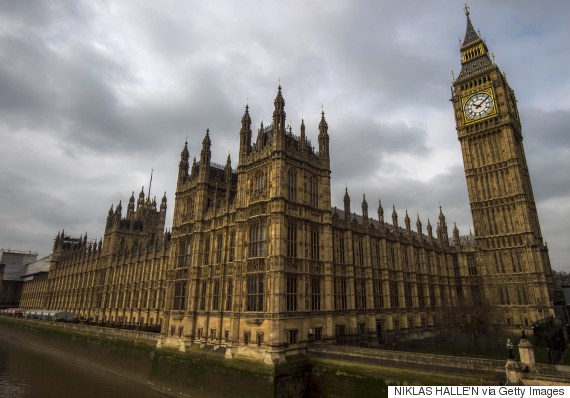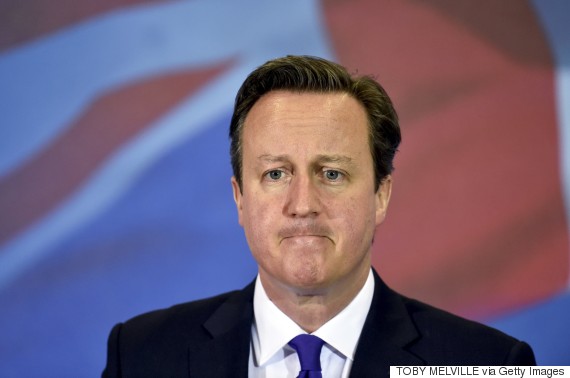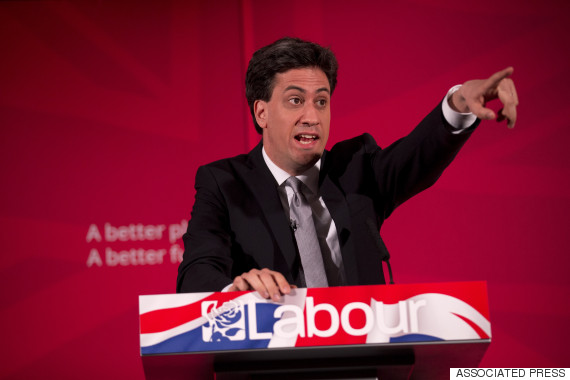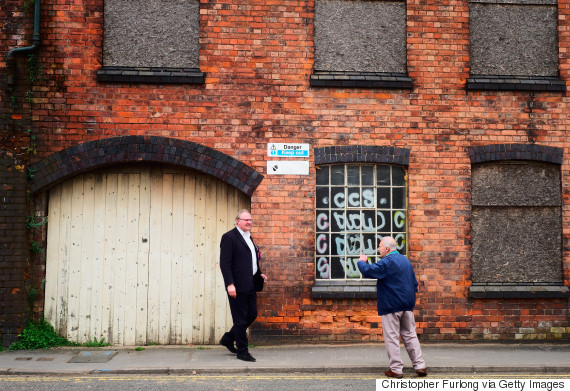
On May 7, some 46 million voters will have the chance to elect a new government for the United Kingdom.
While British electoral politics can be complicated, and frankly a little boring, this will be a historic national election for the country, with global ramifications.
Here is what you need to know about Britain’s upcoming election, and why it matters for the rest of the world.
How it works
On election day, British voters do not directly elect their leader. Instead, they cast their ballots for a member of parliament (MP) to represent their local area, or constituency, in the lower legislative chamber, the House of Commons.
The party with the highest number of MPs usually forms a government, and the party’s leader then becomes prime minister. The electoral system is known as first-past-the-post.
This means it's the proportion of parliamentary seats, not the percentage of the vote, that determines who wins. And these may be dramatically different, because Britain’s constituencies don’t all have the same population numbers.

If no party wins more than half of the seats in parliament -- called a hung parliament -- they will need the support of other parties to form a government, either as a formal coalition or by forming a minority government with a looser form of cooperation with other parties.
Why it’s important
1. It’s the closest election in decades.
Britain’s two main political parties -- Labour on the center-left and the Conservatives on the center-right -- have revolved in and out power since 1922. They have been neck-and-neck in the polls for months. The latest polls on Tuesday put the ruling Conservative party at 35 percent, and Labor at 34 percent.
Not only is the vote close, it is also highly unpredictable. Rising support for other parties -- including the Green Party, the anti-Europe United Kingdom Independence Party (UKIP) and the Scottish National Party (SNP) -- could make the major parties' long-held seats harder to win.
2. It looks like coalition politics is here to stay in the U.K.
Britain's last national election, in 2010, shook up national politics. The Conservatives, who had been in opposition for over a decade, won the most seats in parliament but not an outright majority. After five days of intense wrangling, the Conservatives made a deal with the party that came third, the centrist Liberal Democrats, to form the country's first coalition government since 1945.

For this year's election, polls strongly indicate there will be another hung parliament. There is also a possibility that no two parties combined will reach a majority, leaving a plethora of possible alliances on the table. British political parties are having to grapple with a whole new era of politics. During the campaign, Labour and the Conservatives have made pledges not to go into coalition with rival parties, which they may later have to renege on. If the era of hung parliaments is here to stay, Britain's political parties will have to get used to a whole new way of working together.
3. The future of the United Kingdom is at stake.
Despite losing the referendum on Scottish independence last year, the Scottish National Party is stronger than ever in Scotland. And because the SNP's support is concentrated in Scotland, it could become the third largest party in parliament, at 50 seats, with only 6 percent of the national vote.

The SNP is still committed to an independent Scotland. If the party emerges as the coalition king-maker, or even just a substantial opposition force, it will be well-placed to influence ongoing debates about how power is distributed among the union, comprising England, Wales, Scotland and Northern Ireland. As the Financial Times points out:
The last time an overtly separatist party won a majority of seats in one of the nations of the union was 1918, when Sinn Féin grabbed two-thirds of those in Ireland. The rest, as they say, was uncomfortable history. Hopefully, Britain has moved beyond civil wars, but the strains on the union are no less real. What will be demanded of a new government is a constitutional settlement that at once meets Scottish aspirations for home rule, protects the essential fabric of the union and is fair to the other nations of the UK.
4. The U.K.'s future in the European Union is also at stake.
Britain's ruling Conservative party has pledged to hold Britain's first referendum on whether the country should remain a member of the European Union. The Conservative leader, Prime Minister David Cameron, says he will first push for EU reforms, before allowing the public a chance to vote by the end of 2017. He is under pressure from the Eurosceptic wing inside his own party, as well as from the loss of right-leaning voters to UKIP, which is stridently anti-EU.
The prospect of the U.K. leaving Europe has caused consternation in European capitals and among some members of the business community. Britain's opposition Labor party has criticized the pledge as a risky gamble.
The British public is fairly divided on the issue, with one recent poll showing 45 percent would prefer to stay in the EU and 35 percent are in favor of leaving.

5. The vote comes as Britain reassesses its role on the world stage.
Foreign policy has taken a back seat in the election campaigns, with most voters concerned about Britain's economy, national health service and immigration. (The BBC put together this useful guide to the main party's positions on these issues.)
Some analysts argue this reflects a general trend of growing British isolationism. They point to Britain's declining defense budget, which none of the major parties has promised to protect, and the 2013 parliamentary vote against intervention in Syria. Meanwhile, the future of Britain's nuclear submarine fleet, Trident, is due for a vote in the next parliament, and the rising Green Party and SNP favor scrapping the nuclear weapons program.
As the BBC's Jawad Iqbal explains, the U.K. is divided. While some argue the U.K. has made a dangerous retreat from the world stage, others say it is a strategic move, as Britain "must pick and choose its fights carefully for a different day and age." Yet Britain remains a crucial player in international affairs: a member of the United Nations Security Council, a senior member of the EU, a founding member of NATO and a major U.S. ally. Whatever British voters' intentions, when they go to the polls in two weeks, their decisions will have global ramifications.
Related
Before You Go












